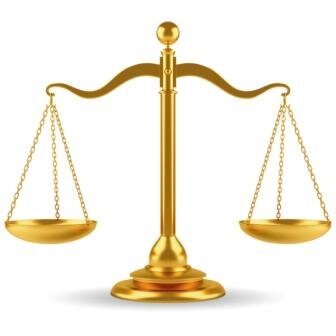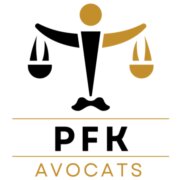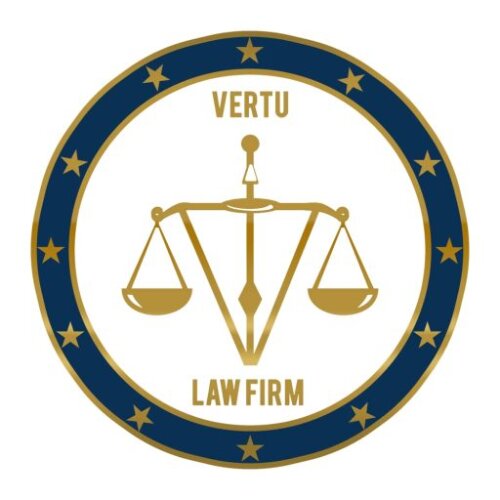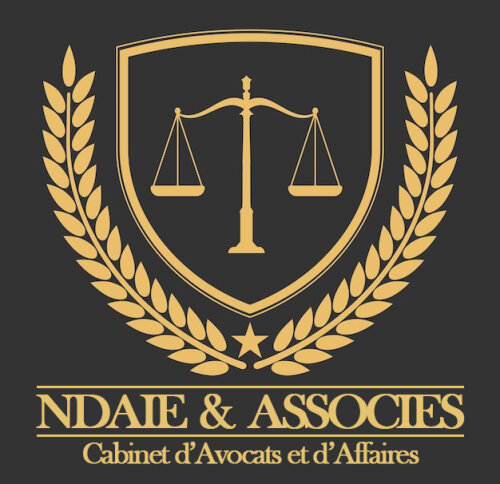Best International Lawyers in Lubumbashi
Share your needs with us, get contacted by law firms.
Free. Takes 2 min.
List of the best lawyers in Lubumbashi, DR Congo
About International Law in Lubumbashi, DR Congo
International law in Lubumbashi, DR Congo recognizes a mix of civil law and customary law. As a bustling city with diversified economic interests, Lubumbashi often navigates legal matters falling under international jurisdiction. These include matters related to human rights, aid work, capital investment, and transnational business disputes. It is a complex field requiring enhanced understanding of Congolese law and its interplay with international legal systems.
Why You May Need a Lawyer
International law addresses issues from economic investments to human rights while also covering crime prosecution, which transcend national boundaries. Hence, you may require a lawyer for cases revolving around areas such as filing or defending against international legal claims, understanding the application of local law in relation to international standards, handling disputes in transnational contracts, and protecting oneself from potential international business risks. Legal representation can provide professional guidance through these complicated issues.
Local Laws Overview
Local laws in Lubumbashi, like the rest of DR Congo, are largely based on the Belgian Civil Law system. Notable legal aspects include the broader adherence to international treaties (provided they don't contradict the constitution), recognition of human rights as dictated by the United Nations, and specific laws governing foreign investments. Understanding these nuances in light of international law requires experienced legal assistance.
Frequently Asked Questions
1. Is DR Congo a member of the International Criminal Court?
Yes, The Democratic Republic of Congo is a member state of the International Criminal Court.
2. Are international human rights laws enforced in DR Congo?
While DR Congo is party to several key international human rights treaties, enforcement within the country can be unpredictable due to various factors, including instability and governance issues.
3. Can a foreigner start a business in Lubumbashi?
Yes, a foreigner can start a business but they must navigate various legal and bureaucratic hurdles. Consulting a lawyer who understands the local and international regulations is advised.
4. Is arbitration accepted in settling international disputes in DR Congo?
Yes, both the Congolese law and international law recognize arbitration as a method of dispute resolution. Yet, the process can be complex and requires experienced legal aid.
5. Does DR Congo law protect foreign investments?
Yes, Congolese law has specific regulations protecting foreign investments, aimed at encouraging economic development. However, investors must follow due legal procedures and understand local contexts.
6. Does DR Congo follow the rule of extradition?
While the precise rules can vary, DR Congo does hold extradition treaties with some countries, subject to certain legal conditions and diplomatic discussions.
7. Can international NGOs operate in Lubumbashi?
Yes, international NGOs can operate in Lubumbashi but must abide by both Congolese laws and relevant international standards.
8. Can international treaties supersede local laws?
In general, the Constitution of DR Congo recognizes international laws and treaties, provided they don't contradict constitutional provisions. Thus, they can have dominance depending on the nature of the matter.
9. Does DR Congo adhere to international labor laws?
DR Congo is a member of the International Labour Organization (ILO) and has ratified numerous conventions. Yet, enforcement is often influenced by various factors and legal advice is recommended for specific cases.
10. What role does the judicial system play in enforcing international laws in DR Congo?
The judicial system plays a key role in interpreting and applying both local and international laws, ranging from civil to criminal matters. This includes applying laws consistent with international commitments and treaties.
Additional Resources
Several bodies and institutions exist to aid in understanding of local and international laws in DR Congo, including the Ministry of Justice and Human Rights, Bar Association, and various international legal bodies. This said, it is advised to seek professional legal help when dealing with specific cases.
Next Steps
If you require legal assistance involving international law in Lubumbashi, it is advisable to seek guidance from a competent attorney who specializes in international law in the DR Congo. They can help accurately interpret laws, navigate any legal proceedings, and advise on the potential outcomes of your case.
Lawzana helps you find the best lawyers and law firms in Lubumbashi through a curated and pre-screened list of qualified legal professionals. Our platform offers rankings and detailed profiles of attorneys and law firms, allowing you to compare based on practice areas, including International, experience, and client feedback.
Each profile includes a description of the firm's areas of practice, client reviews, team members and partners, year of establishment, spoken languages, office locations, contact information, social media presence, and any published articles or resources. Most firms on our platform speak English and are experienced in both local and international legal matters.
Get a quote from top-rated law firms in Lubumbashi, DR Congo — quickly, securely, and without unnecessary hassle.
Disclaimer:
The information provided on this page is for general informational purposes only and does not constitute legal advice. While we strive to ensure the accuracy and relevance of the content, legal information may change over time, and interpretations of the law can vary. You should always consult with a qualified legal professional for advice specific to your situation.
We disclaim all liability for actions taken or not taken based on the content of this page. If you believe any information is incorrect or outdated, please contact us, and we will review and update it where appropriate.















